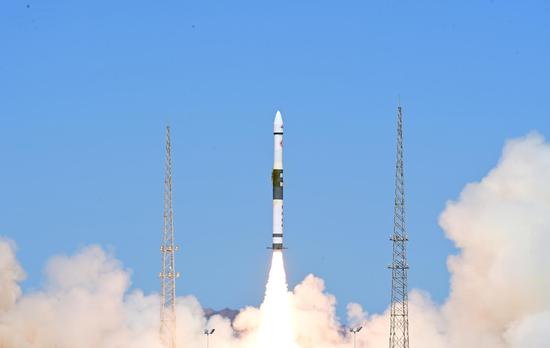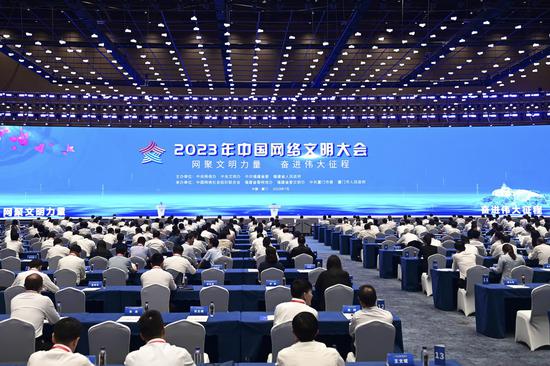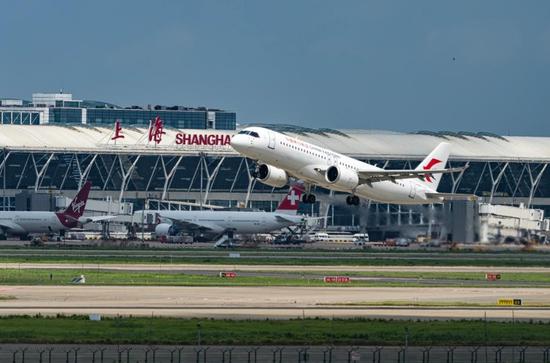Experts: PBOC, SAFE show ample policy reserves will safeguard RMB
The yuan rebounded on Thursday as China eased the quota of corporates' foreign debt, a move that experts said has reassured the market of the authorities' readiness to utilize their ample policy reserves to safeguard the stability of the Chinese currency.
Experts also said the yuan, also known as the renminbi or RMB, may further shake off its recent weakness and strengthen against the greenback in the second half of the year as China's economy is expected to outperform that of the United States while U.S. interest rate hikes will come to an end.
On Thursday, the onshore yuan jumped by 386 basis points against the U.S. dollar to 7.1811 as of 16:30, after it shed 872 basis points against the greenback in a three-day weakening streak, according to market tracker Wind Info.
The rally came after China increased the macroprudential adjustment parameter for cross-border financing of corporates and financial institutions to 1.5 from 1.25, effective Thursday.
The parameter acts as a multiplier that determines the upper limit of outstanding cross-border financing an institution can avail. For instance, a nonfinancial enterprise with total net assets of 1 million yuan ($139,277) should be allowed to have 3 million yuan in outstanding external debt following Thursday's move, up from 2.5 million yuan previously.
By allowing more overseas borrowing, the move will boost capital inflows, increase onshore dollar liquidity and stabilize the yuan, experts said, adding that it also delivered a clear signal that the authorities are ready to utilize their policy reserves in time to safeguard yuan stability.
The People's Bank of China, the country's central bank, and the State Administration of Foreign Exchange jointly announced on Thursday they are raising the parameter, several days after PBOC Deputy Governor Liu Guoqiang assured that the PBOC will use its policy tools when needed, to keep the yuan exchange rate generally stable at a reasonable level.
Zhou Maohua, an analyst at China Everbright Bank, said the PBOC still has ample tools to stabilize the yuan after Thursday's move, including the foreign exchange deposit reserve requirement ratio, the RRR for trading in foreign-exchange forward contracts and the countercyclical adjustment factor.
So far this year, the onshore yuan has depreciated by more than 3 percent against the dollar, which experts attributed to China-U.S. monetary policy divergence as well as the U.S. economy's resilience when China's economic recovery had slowed down.
China's one-year loan prime rate, a market-based benchmark lending rate, came in at 3.55 percent on Thursday, unchanged from the previous month, after it fell by 10 basis points in June as the PBOC further eased monetary policy to support the economy.
By contrast, the U.S. Federal Reserve is widely expected to further raise the target range for the federal funds rate by 25 basis points to 5.25-5.5 percent next week. The widening U.S.-China interest rate differential, experts said, has put pressure on the yuan against the dollar.
This narrative, however, could reverse in the second half of the year. Hu Yifan, head of macroeconomics for Asia-Pacific at UBS Global Wealth Management, said the yuan may recover to about, or even stronger than, the 7-per-dollar level by the end of the year as the Fed may stop rate hikes in the coming months.
Also underpinning the yuan would be China's economic condition faring better than that of the U.S. as the latter may see negative growth in the second half following the Fed's rate hikes while China's economy further recovers, Hu said.
Foreign holdings of U.S. Treasuries decreased in May as the U.S. aggressively raised interest rates. As the second-biggest foreign holder of U.S. debt, China's holdings in U.S. Treasury securities slid to a 14-year low at $846.7 billion as of the end of May, down by $22.2 billion from April, the U.S. Treasury Department said on Tuesday.


















































 京公網(wǎng)安備 11010202009201號
京公網(wǎng)安備 11010202009201號